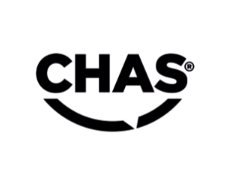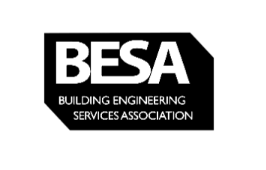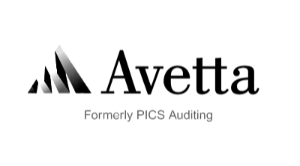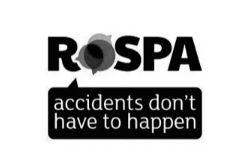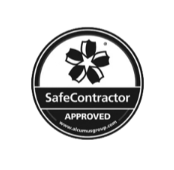Have you ever glanced at your patio or driveway and thought it could use a serious scrub? Maybe you’ve considered renting some equipment or hiring a service but got tangled up in the terminology—pressure washing, jet washing, jet washer, power washing. Aren’t they all the same thing? Surprisingly, while these terms are often used interchangeably, there are subtle yet important differences between them.
Even if you’re somewhat familiar with outdoor cleaning equipment, the distinctions can be a bit hazy. So let’s roll up our sleeves and dive into what sets these cleaning methods apart.
Getting to Know the Basics
At their core, pressure washing, jet washing, and power washing all involve using water under pressure to clean surfaces. High pressure cleaning is an advanced and effective method that blasts away dirt, grime, mould, and other unwanted substances to restore surfaces to their former glory. But the way each method achieves this can vary, and choosing the right one can make a significant difference in your cleaning results.
Definitions and Explanations
Pressure washing, also known as jet washing, is a highly effective cleaning method that utilizes high-pressure water jets to remove dirt, grime, and other unwanted substances from various surfaces. A pressure washer is the device that generates these powerful water jets, typically operating at pressures ranging from 1,000 to 4,000 pounds per square inch (PSI). The cleaning performance of a pressure washer is largely determined by its flow rate, which is measured in litres per minute (L/min). A higher flow rate means more water is being used, which can enhance the cleaning power, especially for stubborn stains. Whether you’re looking to remove dirt from your driveway or freshen up your garden furniture, understanding these basics can help you choose the most reliable pressure washer for your needs.
High Pressure Cleaning
Let’s start with pressure washing, probably the term you’ve heard the most. Pressure washing uses a machine to pump water at high pressure—usually between 1,300 and 2,400 PSI (pounds per square inch). The water comes out cold, straight from your garden hose, without any heating element involved.
Pressure washing is fantastic for general cleaning tasks around the house. Think about your wooden deck that’s collected algae over the winter, or the patio furniture that’s looking a bit worse for wear. It’s effective at removing dirt, dust, loose paint, mould, and mildew. The combination of high water pressure and water volume plays a critical role in its cleaning effectiveness. Since it doesn’t use hot water, it’s gentler on surfaces and less likely to cause damage if you use it correctly.
Jet Washing
Now, jet washing might sound a bit more intense, and in some cases, it is. The term “jet washing” is often used in the UK and can sometimes refer to machines that offer higher pressure or specialized nozzles that create a more concentrated stream of water—the “jet,” if you will.
In many ways, jet washing is similar to pressure washing. Both use high-pressure water to clean surfaces. However, if someone mentions jet washing, they might be talking about equipment that packs a bit more punch, suitable for tackling tougher grime and stains. Additionally, modern jet washing equipment often features a trigger gun, which enhances user control by allowing easy switching between detergent and pressure modes, activating different pressure settings, and displaying the set pressure. It’s like pressure washing’s beefed-up cousin.
Power Washing
Power washing takes things up a notch by introducing heated water into the equation. A power washer uses high-pressure water, just like a pressure washer, but with one key difference: the water is heated, often up to 200 degrees Fahrenheit or more.
Why add heat? Well, think about how you wash dishes. Hot water breaks down grease and grime more effectively than cold water, right? The same principle applies here. The combination of high pressure and hot water makes power washing exceptionally good at removing tough stains like oil, grease, mould, and mildew. Unlike traditional methods that leave behind sponges and buckets of dirty water, power washing ensures a more thorough and efficient cleaning process.
Power washing is often the go-to method for commercial or industrial cleaning tasks but can also be beneficial for certain residential jobs, like cleaning an oil-stained garage floor or a heavily mildewed brick wall.
Choosing the Right Method for Outdoor Cleaning Tasks
So, which method is best for your needs? It all boils down to what you’re trying to clean and how stubborn the dirt or stains are. The range of pressure washers available ensures that there is a suitable option for every cleaning task, from light-duty to heavy-duty requirements.
Pressure Washing (and Jet Washing):
-
Ideal For: General cleaning tasks—decks, patios, outdoor furniture, house siding, vehicles.
-
Advantages: Effective at removing surface dirt and grime without damaging surfaces. Equipment is widely available and relatively easy to use for DIY projects.
-
Considerations: May not be as effective on tough, greasy stains or deeply embedded mould and mildew.
Power Washing:
-
Ideal For: Heavy-duty cleaning tasks—oil-stained driveways, heavily soiled concrete, areas with significant mould or mildew build-up.
-
Advantages: The hot water combined with high pressure makes it highly effective at breaking down stubborn contaminants.
-
Considerations: Equipment is more expensive and can be more challenging to operate. There’s a higher risk of damaging surfaces due to the heat and pressure.
Environmental Impact
While pressure washing is an efficient way to clean various surfaces, it can have a significant environmental impact if not done correctly. The use of high-pressure water jets can lead to water waste, soil erosion, and potential damage to plants and other vegetation. Additionally, the runoff from cleaning chemicals and detergents can contaminate soil and waterways, posing a risk to local ecosystems. However, many modern pressure washers, including those from Kärcher, are designed with eco-friendliness in mind. These models use less water and energy compared to traditional pressure washers, making them a more sustainable choice for your outdoor cleaning tasks. By opting for environmentally friendly pressure washers, you can achieve excellent cleaning results while minimizing your environmental footprint.
Safety First
Regardless of which method you choose, safety should always be a top priority. The force of water from a pressure washer can cause serious injuries if it comes into contact with skin. With power washers, the risk increases due to the high temperature of the water, which can cause severe burns.
Here are some safety tips to keep in mind:
-
Wear Protective Gear: Safety goggles, gloves, and sturdy, non-slip footwear are essential.
-
Mind Your Surroundings: Be aware of people, pets, and property around you. The high-pressure stream can cause damage or injury if not properly directed.
-
Read the Manual: Familiarize yourself with the equipment before use. Each machine may have specific instructions or safety features.
-
Test First: Start with the lowest pressure setting and test on a small, inconspicuous area to ensure you won't damage the surface.
If you're ever unsure about how to operate the equipment safely, it might be best to call in the professionals.
DIY Pressure Washing
DIY pressure washing can be a cost-effective and efficient way to tackle various cleaning tasks around your home and garden. However, it’s crucial to use the right equipment and techniques to avoid damaging surfaces and ensure effective cleaning. Here are some essential tips for DIY pressure washing:
-
Always read the manufacturer’s instructions and follow safety guidelines.
-
Choose the appropriate nozzle and spray pattern for the surface you’re cleaning.
-
Use a wide fan tip for large areas and a narrow tip for smaller, more concentrated cleaning.
-
Keep the nozzle at least 12 inches away from the surface to prevent damage.
-
Use a low-pressure setting for delicate surfaces and a high-pressure setting for tougher, more resilient surfaces.
By following these guidelines, you can make the most of your pressure washer and achieve professional-level cleaning results without the risk of damage.
Surface-Specific Pressure Washing
Different surfaces require different pressure washing techniques and equipment to ensure effective and safe cleaning. Here are some surface-specific tips to help you get the best results:
Driveways and Sidewalks
-
Use a wide fan tip and a high-pressure setting to effectively remove dirt and grime from driveways and sidewalks.
-
Apply a cleaning solution specifically designed for concrete surfaces to enhance the cleaning power.
-
Avoid using high-pressure jets on cracks or joints, as this can cause further damage and erosion.
Decks and Fences
-
Opt for a narrow fan tip and a low-pressure setting to avoid damaging wood surfaces.
-
Use a cleaning solution specifically formulated for wood to protect and clean the material.
-
Steer clear of high-pressure jets on loose or rotten wood, as this can exacerbate the damage.
By tailoring your approach to the specific surface you’re cleaning and using the right equipment and techniques, you can ensure that your pressure washing efforts are both effective and safe. Whether you’re sprucing up your driveway or refreshing your deck, a reliable pressure washer can make all the difference.
When to Hire a Professional
Sometimes, the job is just too big, too complex, or too risky to tackle on your own. That’s where professional cleaning services come in.
At phs Group, we specialize in pressure washing, jet washing, and power washing. Our experienced team knows exactly which method to use for every type of surface and stain. We handle everything from assessing the job and choosing the right equipment, including Karcher pressure washers, to executing the task safely and efficiently.
We use top-of-the-line equipment and eco-friendly cleaning solutions to ensure your property not only looks great but is also treated with care. Whether it’s your home’s exterior, your business premises, or industrial equipment, we’ve got the expertise to get the job done right.
Frequently Asked Questions
Q: Is power washing my house a good idea?
A: Power washing can be highly effective at removing dirt, mould, and mildew from your home’s exterior. However, it can also cause damage if not done correctly. The high pressure and heat can strip paint, damage siding, or even harm the structure of your home. It’s crucial to use the right settings and techniques—or better yet, hire a professional who knows how to handle the equipment safely. When hiring a professional, ensure that the quoted prices are inc vat to understand the total cost upfront.
Q: Can I pressure wash my car?
A: Yes, but with caution. While pressure washing can remove dirt and grime from your vehicle, using too high a pressure can damage the paint or force water into areas it shouldn’t go. Use a pressure washer with a lower PSI setting (around 1,200 to 1,900 PSI) and a wide spray nozzle. Keep the nozzle at least a foot away from the surface.
Q: What’s the main difference between pressure washing and jet washing?
A: In most cases, pressure washing and jet washing are the same. Both use high-pressure water to clean surfaces. Some people use “jet washing” to refer to equipment with higher pressure or specialized nozzles, but generally, the terms are interchangeable.
Q: Do I need to use detergents or chemicals when pressure washing?
A: While high-pressure water can handle many cleaning tasks on its own, adding detergents can enhance the cleaning power, especially for stubborn stains or organic growth like mould and mildew. Make sure to use cleaners that are designed for pressure washers and are safe for the environment.
Q: How often should I pressure wash my home’s exterior?
A: It depends on your local climate and environmental conditions. Generally, pressure washing your home’s exterior once a year is sufficient to keep it looking fresh. However, if you live in an area with high humidity, lots of trees, or heavy pollution, you might need to do it more frequently.
Wrapping Things Up
Understanding the differences between pressure washing, jet washing, and power washing can help you make informed decisions about how to best care for your property. Whether you're planning a DIY project or considering hiring professionals, knowing which method suits your needs ensures effective cleaning without causing damage.
Remember, while these tools are incredibly useful, they can also be dangerous if not handled properly. Don't hesitate to reach out to professionals if you're unsure about tackling a job on your own.
Let Us Help You Shine
Ready to give your home or business that fresh, clean look? At phs Group, we're committed to delivering exceptional results with minimal disruption to your daily life. Our friendly, professional team is just a phone call away.
Why Choose Us?
-
Expertise: Our team is trained in all aspects of pressure, jet, and power washing.
-
Safety: We prioritize safety for both our team and your property.
-
Eco-Friendly: We use environmentally friendly cleaning solutions.
-
Convenience: We work around your schedule and handle everything from start to finish.
Get in Touch Today!
Don't let dirt and grime detract from the beauty of your property. Contact us today for a free consultation and let us help you determine the best cleaning solution for your needs.
Your property deserves the best care, and we're here to provide it. Whether it's a simple pressure washing job or a complex power washing task, we've got the skills and equipment to make your surfaces look brand new. Let's make your property shine!





























